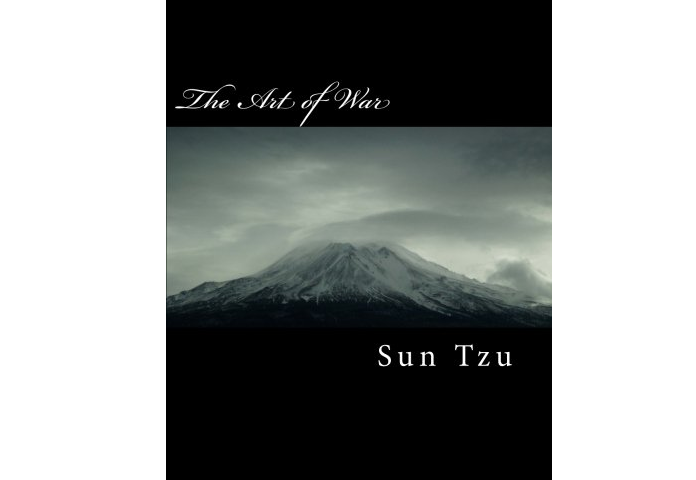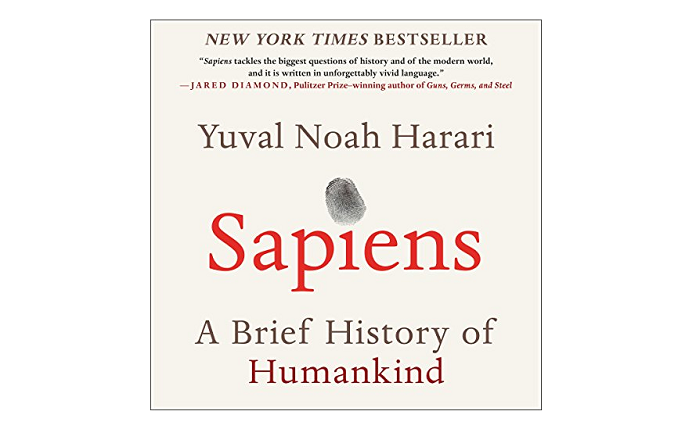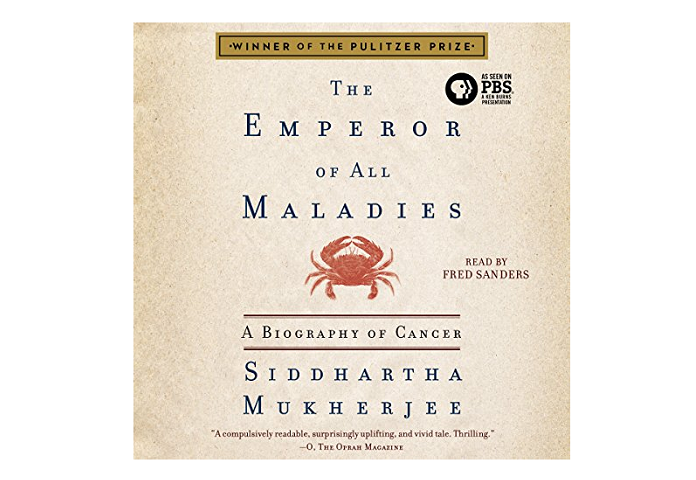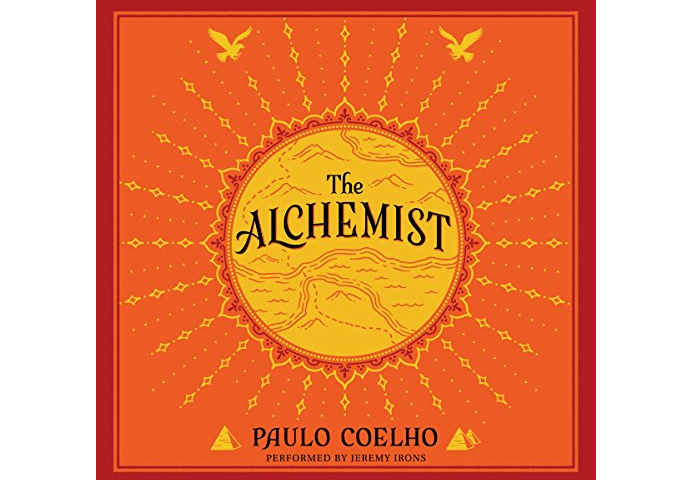An entire universe of knowledge unfolds before you as you develop yourself to be an avid reader. So, do you want to be smarter or at least feel smarter? Look at some of the best books to make you think smarter!
Books That Change The Way You Think
Reading all or any of the following books will surely make you think smarter:
1. The Art of War by Sun Tzu
Goodreads: 4 Audible: 4.2/5 Publication date: 2009 Publisher: Penguin Classics Language: English Print length: 384 pages
The Art of War is one of the earliest known treatises on warfare strategy, authored by the ancient Chinese military strategist Sunzi (also known as Sun-Tzu). This Chinese-language guide, known as Bingfa, contains details on numerous warfare maneuvers and tactics and strategic advice on gathering information on the enemy’s location and battlefield environment before invading. The Art of War’s concept is that war should be avoided through diplomacy; however, if it is unavoidable, it should be fought strategically and psychologically to minimize harm and resource waste. Warfare should only be used as a last resort because entering war entails admitting defeat. Sunzi used a mix of peaceful resolutions and fierce combat to deal with his enemies. This reflects the Taoist yin and yang principles (opposing but complementary forces). Sunzi advised that every leader follow the universe’s Tao (or natural order) as a key component of good leadership. Many precise fighting strategies and recommendations can be found in The Art of War. It emphasizes war preparation above all else, including weather and battle terrain planning, understanding the enemy’s actions and weaknesses, and adequate military training. At the same time, it advises being adaptable due to the unpredictability of the battlefield. Generals are discouraged from using siege warfare since it prolongs the struggle and wastes resources. Generals should also treat captive and vanquished troops with dignity. Although it is difficult to pinpoint exactly when The Art of War was written, most researchers believe it occurred between 475 and 221 B.C.E., during the Warring States period. Scholars are similarly uncertain about the facts of Sunzi’s life, but they assume he was a general working for the Wu state. Whatever Sunzi’s past experiences were, it was evident that he knew a lot about battle and military training.
2. Thinking, Fast and Slow by Daniel Kahneman
Goodreads: 4.7 Audible: 4.2 Publication date: April 2, 2013 Publisher: Farrar, Straus, and Giroux. Language: English Print length: 499 pages
Daniel Kahneman, a world-renowned psychologist and Nobel Laureate in Economics, takes us on a pioneering tour of the mind in his blockbuster hit “Thinking, Fast and Slow,” as he explains the two systems that drive our thinking. This book is one of the highly-rated contemporary classics and an essential book that has impacted the lives of millions of readers. It has topped bestseller lists for nearly a decade now. According to Kahneman, System 1 is quick, intuitive, and emotive, while System 2 is slow, deliberate, and rational. Hence, the impact of overconfidence on corporate strategies, the difficulty of predicting what will make us happy in the future, and the profound impact of cognitive biases on everything from stock market trading to vacation planning—all of these things can only be understood if we know how the two systems shape our judgments and decisions. In his book, Kahneman engages the reader in a spirited discussion about how we think, revealing where we may and cannot trust our instincts and how we might gain from slow thinking. He provides insights into how we make decisions in our professional and personal lives and how we can utilize various tactics to avoid the mental blunders that frequently get us into difficulty.
3. A Short History of Nearly Everything by Bill Bryson
Goodreads: 4.6 Audible: 4.8 Publication date: September 14, 2004 Publisher: Crown Language: English Print length: 544 pages
Bill Bryson opens “A Short History of Nearly Everything” by saying that he’s delighted the reader can join him, mainly because the reader, like every other living being, exists only as a result of a long chain of events that began with atoms and ended with a complicated life. Since 99.99 percent of species become extinct, and all species’ life depends on a unique history of good timing and good luck, being alive is the result of an incredible degree of “biological good fortune.” Bryson is also fascinated by how scientists acquire their knowledge, and he questions why so much science writing portrays the history of scientific discovery as abstract, dull, and technical. More so, Bryson explains that he was inspired to write this book after realizing that he knows very little science and that most science texts were boring and inaccessible to him during his education. His goal, however, is to investigate if science can be written so that the reader is enthralled by the history of life on Earth and becomes more intrigued by the mission of scientific investigation.
4. The Greatest Secret in the World by Og Mandino
Goodreads: 4.6 Audible: 4.6 Publication date: January 1, 1997 Publisher: Bantam Books Language: English Print length: 544 pages
Og Mandino is the world’s most popular inspirational and self-help author. Mandino is also notable as the first recipient of the Napoleon Hill Gold Medal for literary achievement, and he was the former president of Success Unlimited magazine. Og Mandino was inducted into the International Speakers Hall of Fame and received the National Speakers Association’s Masters of Influence award. Although he passed away in 1996, his novels continue to inspire millions worldwide, and “The Greatest Salesman in the World” is one of his many masterpieces. The groundbreaking book opens the door to a world of personal fulfillment and astonishing achievement. In his dramatic sequel to “The Greatest Salesman in the World,” Og Mandino’s Spellbinding Bestseller, one of the world’s most famous writers, provides one of the world’s greatest secrets for your personal and commercial success.
5. The 48 Laws Of Power by Robert Greene
Goodreads: 4.2 Audible: 4.4 Publication date: 1998 Publisher: Viking Press Language: English Print length: 480 pages
If given the option, everyone would choose greater authority over less. However, being open about one’s desire for power is frowned upon. To get power, you must simultaneously be sophisticated, cunning, democratic, and deceitful. As a result, best-selling author Robert Greene contends in his controversial book “The 48 Laws of Power” that if you can entice, charm, and fool your opponents, you will achieve ultimate power. According to Greene, the better you are at delegating authority, the better friend, lover, and person you will be. This is because you learn how to make others feel good about themselves, making them reliant on you as a source of great pleasure to be around. “The 48 Laws of Power” spans over 3,000 years and comprises 48 pearls of wisdom from men and women from many foreign civilizations who all share a similar thread. “The 48 Laws of Power” is generally a how-to manual for becoming more powerful. It is a priceless source of information for people looking to advance in their careers.
6. Invisible Man by Ralph Ellison
Goodreads: 3.9 Audible: 4.0 Publication date: April 14, 1952 Publisher: Random House Language: English Print length: 581 pages
The narrative of a young, college-educated black man striving to survive and flourish in a racially divided society that refuses to accept him as a human being is told in Ralph Ellison’s “Invisible Man.” The book is written in the first-person point of view and recounts the anonymous narrator’s physical and psychological journey from blind ignorance to enlightened awareness — or, as the author puts it, “from Purpose to Passion to Perception” — through a sequence of dreams and memories. The novel begins in the South (Greenwood, South Carolina). Still, most of the action took place in the North (Harlem, New York) during the pre-Civil Rights era, when segregation laws prevented black Americans from enjoying the same basic human rights as their white counterparts. To thoroughly depict this situation, the “Invisible Man” follows an unnamed narrator from his high school and college days in the South to his harrowing experiences in the North as a member of the Brotherhood, a powerful organization that claims to fight for justice and equality for all people but in reality exploits and uses blacks to promote its political agenda. In this book, Ellison shows how powerfully social and political forces conspire to keep black Americans “in their place,” denying them the “inalienable right to life, liberty, and the pursuit of happiness” guaranteed to all Americans by describing one man’s lifelong struggle to establish a sense of identity as a black man in white America. To date, the book is still revered as one of the literary works that changed the perspectives of American literature.
List of Books That Make You Smarter
The books listed below are bound to make you smarter:
7. Sapiens: A Brief History of Humankind by Yuval Noah Harari
Goodreads: 4.6 Audible: 4.2 Publication date: February 10, 2015 Publisher: Harper; Illustrated edition Language: English Print length: 464 pages
“Sapiens” retells the history of homo sapiens from a whole new perspective, starting with the fascinating idea that they rule the world because of the strength of their imagination. They are the only species that can believe in the existence of things like gods, states, money, and even human rights. The book goes on to explain why money is the most pluralistic system of mutual trust ever devised; why capitalism is the most successful religion ever devised; why modern agriculture’s treatment of animals is likely the worst crime in history; and why, despite being far more powerful than our ancient ancestors, we aren’t much happier. “Sapiens” examines significant events that impacted humanity and the world around it, such as the birth of agriculture, the invention of money, the spread of religion, and the establishment of the nation-state. However, unlike other novels of its ilk, “Sapiens” takes a multi-disciplinary approach to history, biology, philosophy, and economics in a way that has never been done before. Sapiens also explain what happened, why, and how it felt for individuals from a macro and micro perspective. For its unique perspective, the book gained cult status among a wide range of audiences as it is esteemed for combining profound truths with strikingly vivid language, enthralling teens, university professors, animal rights activists, and even government ministers. As of now, the book has been translated into 65 languages and has sold 23 million copies around the world.
8. The Emperor of All Maladies: A Biography of Cancer by Siddhartha Mukherjee
Goodreads: 4.7 Audible: 4.8 Publication date: August 9, 2011 Publisher: Scribner Language: English Print length: 608 pages
“The Emperor of All Maladies” is a wonderful and intense biography of cancer, from its earliest documented appearances thousands of years ago to epic fights to cure, control, and vanquish it in the twentieth century, to a startling new understanding of its nature. Siddhartha Mukherjee, a physician, researcher, and award-winning science writer, examines cancer with the precision of a cellular biologist, the perspective of a historian, and the passion of a biographer. The result is an incredibly clear and lyrical account of a condition that humans have lived with — and died from — for more than 5,000 years. The book is written in the style of a literary thriller, with cancer as the main character. From the Persian Queen Atossa, whose malignant breast was cut off by a Greek slave, to nineteenth-century recipients of primitive radiation and chemotherapy, to Mukherjee’s leukemia patient, Carla, the book depicts the lives of people who have endured grueling regimens to survive — and to learn more about this enduring disease.
9. The Sixth Extinction by Elizabeth Kolbert
Goodreads: 4.6 Audible: 4.1 Publication date: February 11, 2014 Publisher: Henry Holt and Co. Language: English Print length: 338 pages
An important work on the future of the Earth, combining intellectual and natural history research with field reporting to create a dramatic picture of the catastrophic extinction that is unfolding right in front of our eyes. So far, there have been five mass extinctions in the last half-billion years when the diversity of life on Earth abruptly and significantly shrank. Scientists worldwide are presently tracking the sixth extinction, which is expected to be the most severe since the dinosaurs were wiped off by an asteroid impact. However, this time, the apocalypse is being triggered by mankind. Elizabeth Kolbert, a two-time National Magazine Award winner and New Yorker writer, draws on the work of scores of researchers from a half-dozen disciplines to produce “The Sixth Extinction.” She literally accompanies many of them in the book into the field: geologists who study deep ocean cores, botanists who follow the tree line as it climbs up the Andes, and marine biologists who dive off the Great Barrier Reef. Kolbert, in this piece, goes the extra mile to present a riveting description of the disappearances that occur all around us through these anecdotes. It also chronicles the growth of extinction as a concept from its first articulation by Georges Cuvier in revolutionary Paris to the present day. As Kolbert points out, the sixth extinction is likely to be humanity’s greatest lasting legacy, forcing us to reconsider what it means to be human.
10. Hidden Figures by Margot Lee Shetterly
Goodreads: 4.5 Audible: 4.3 Publication date: September 6, 2016 Publisher: William Morrow and Company Language: English Print length: 368 pages
A group of committed female mathematicians known as “human computers” utilized pencils, slide rules, and adding machines to calculate the numbers that would propel rockets and men into space before John Glenn orbited the planet or Neil Armstrong stepped on the moon. Many knowledgeable African American women, some of the sharpest minds of their generation, were among these problem-solvers. Although limited to teaching arithmetic in segregated public schools in the South, these ladies were called into service during World War II labor shortages, when America’s aeronautics sector was desperate for anyone with the proper skills. Suddenly, these underappreciated math whizzes had a chance at occupations that matched their abilities, so they heeded Uncle Sam’s call and relocated to Hampton, Virginia, and the exciting, high-energy world of the Langley Memorial Aeronautical Laboratory. Despite being segregated from their white counterparts due to Virginia’s Jim Crow laws, the ladies of Langley’s all-black “West Computing” division helped America achieve one of its most cherished goals: a decisive triumph over the Soviet Union in the Cold War and complete dominance of the heavens. The book generally explores the interconnected stories of Dorothy Vaughan, Mary Jackson, Katherine Johnson, and Christine Darden, beginning with World War II and continuing through the Cold War, the Civil Rights Movement, and the Space Race.
11. Man’s Search For Meaning by Viktor Frankl
Goodreads: 4.4 Audible: 4.2 Publication date: 1946 Publisher: Beacon Press Language: German Print length: 200 pages
Viktor Frankl’s 1946 book “Man’s Search for Meaning” chronicles his experiences as a Nazi concentration camp prisoner during World War II and outlines his psychotherapeutic method, which entailed defining a positive purpose in life and then immersively visualizing that end. According to Frankl, a prisoner’s outlook on the future impacted his longevity. The goal of the book is to answer the question of how living in a difficult place like a concentration camp affects the mind of a prison. Part One explores Frankl’s experiences in concentration camps, while Part Two introduces his concepts about the meaning of his logotherapy theory.
12. The Alchemist by Paulo Coelho
Goodreads: 3.9 Audible: 4.4 Publication date: April 25, 1993 Publisher: Harper One Language: English Print length: 197 pages
Paulo Coelho’s captivating novel in the eclectic “magical realism” category is stunning in many aspects. The writing style is simple, but it contains strong emotions, complex characters, narrative twists, and inspiring knowledge. Santiago, an Andalusian shepherd boy, journeys from Spain to the Egyptian desert in search of a treasure buried in the Pyramids. He is a basic sheep herder as well as a daring explorer. He genuinely follows his dreams and “signs” from his surroundings. The protagonist is wise above his years, but he is nevertheless a youngster who is easily influenced. However, what begins as a search for material commodities becomes a discovery of the gem hidden within — a narrow line between reality and spirituality. Throughout the novel, he goes from desperate to hopeful and back again. The combination of his mission and the magical realism genre may leave the reader with unanswered questions. Is it a coincidence that Santiago summoned the sandstorm that led to his desert escape? Was it a sense of desire to fulfill his commitment to return to Fatima that he felt Fatima’s kiss on his cheek at the end, or was it merely a sense of longing to fulfill his vow to return to her? Lush, evocative, and full of awesome quotes about being, the story of Santiago is a real (and slightly magical) representation of the transforming power of our dreams, whether real or imagined, people in our lives, and the importance of listening to our hearts.
Does Reading Make You Smarter?
Over the years, many researchers have concluded that developing good reading skills at a young age; that is, the age at which you can start reading to the child, leads to greater intelligence later in life. Regular reading can not only help you become wiser, but it can also boost your brainpower. Reading consistently boosts memory performance by giving your brain a decent workout, just like going for a jog does for your cardiovascular system. More so, many studies published in Neurology maintain that memory and brain function diminishes with age, but regular reading may help delay the process and keep minds sharper for longer years. Generally, it boosts empathy, helps to build vocabulary, makes one aware of a wide range of themes and situations, and creates the ability to sense emotions and sentiments in others.















